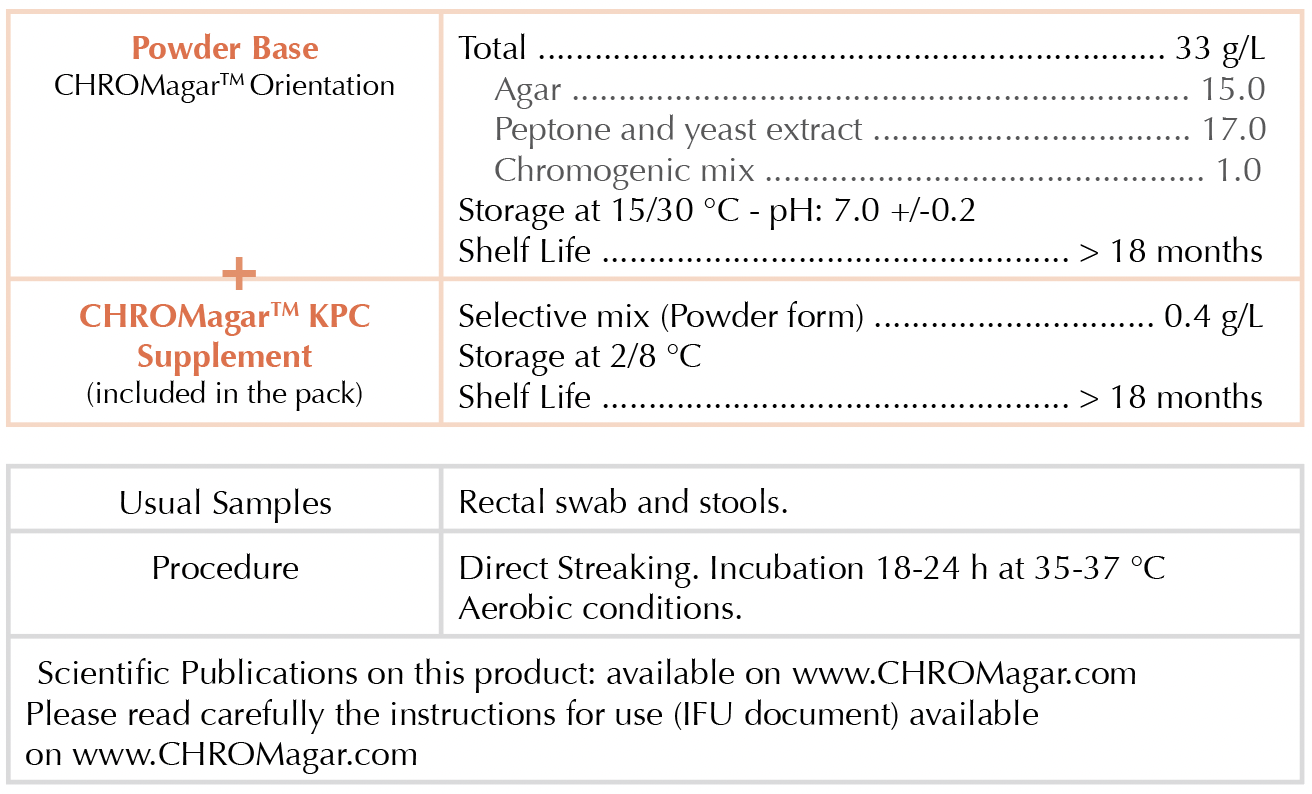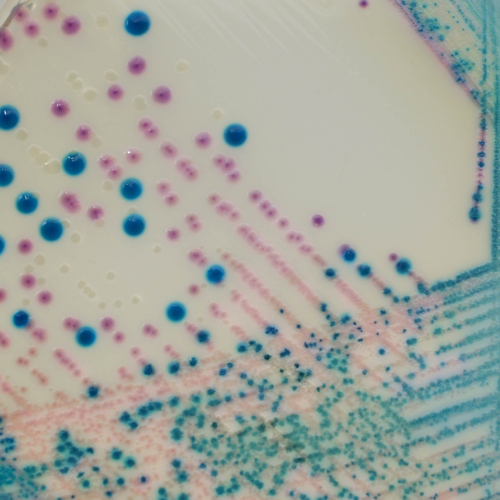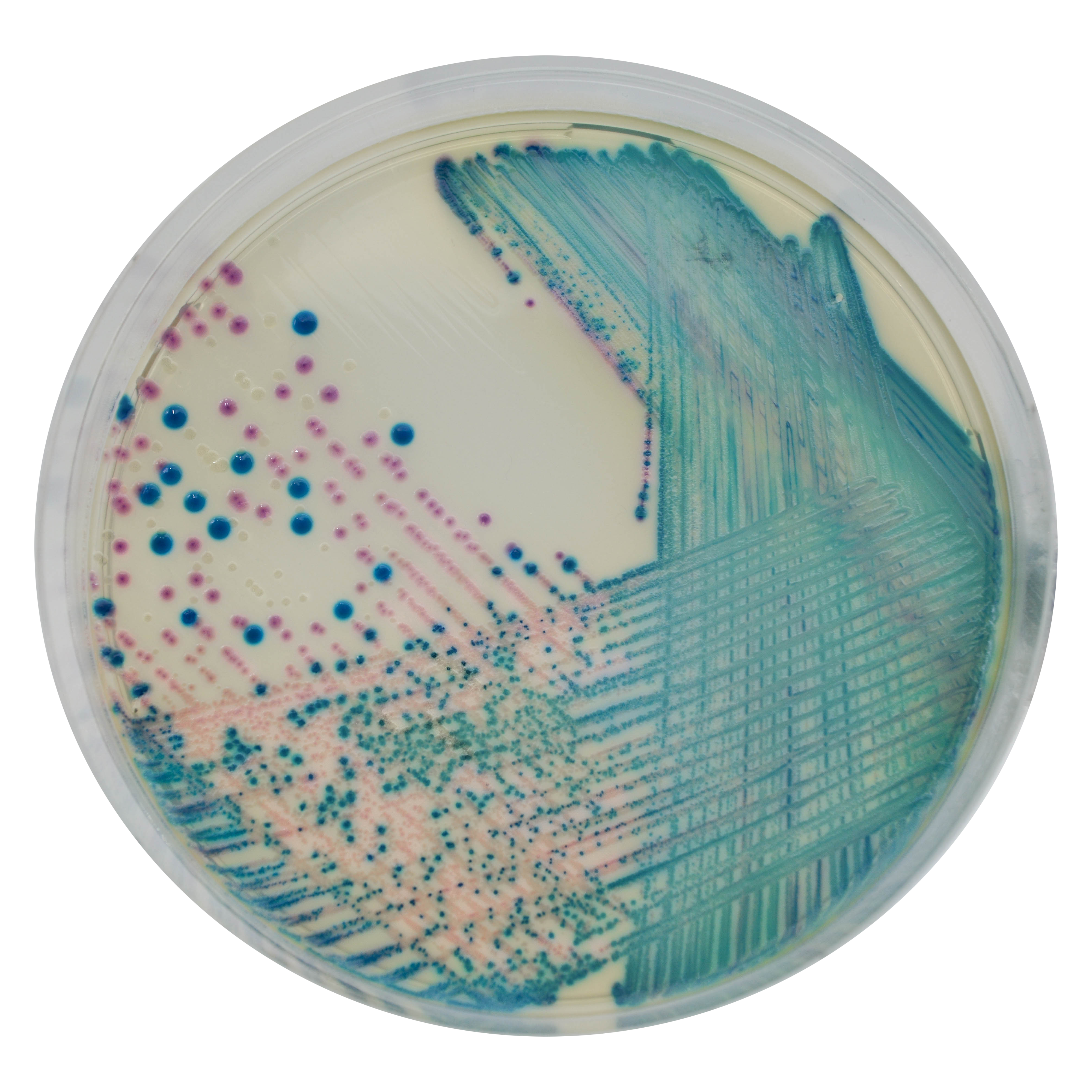Description
Colonies Appearance
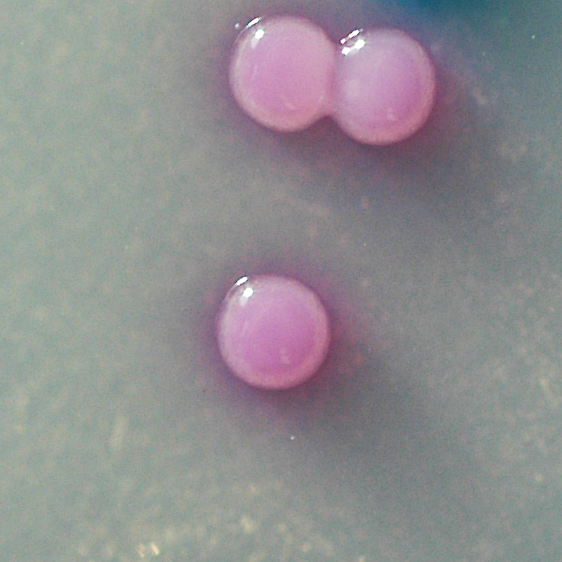
E. coli CarbapenemR
dark pink to reddish
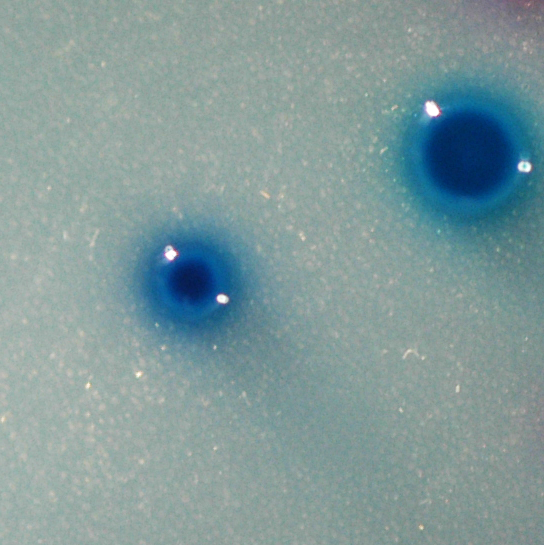
Klebsiella, Enterobacter, Citrobacter CarbapenemR
metallic blue (+/- red halo)
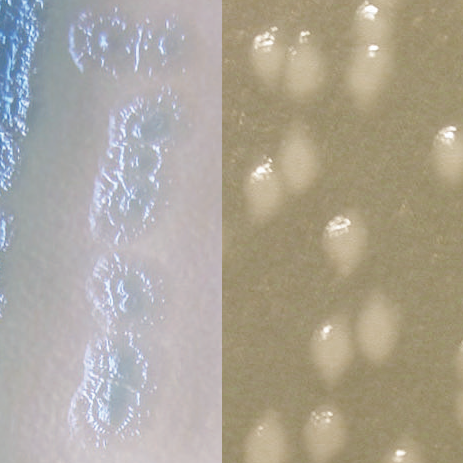
Pseudomonas CarbapenemR
translucent cream to blue
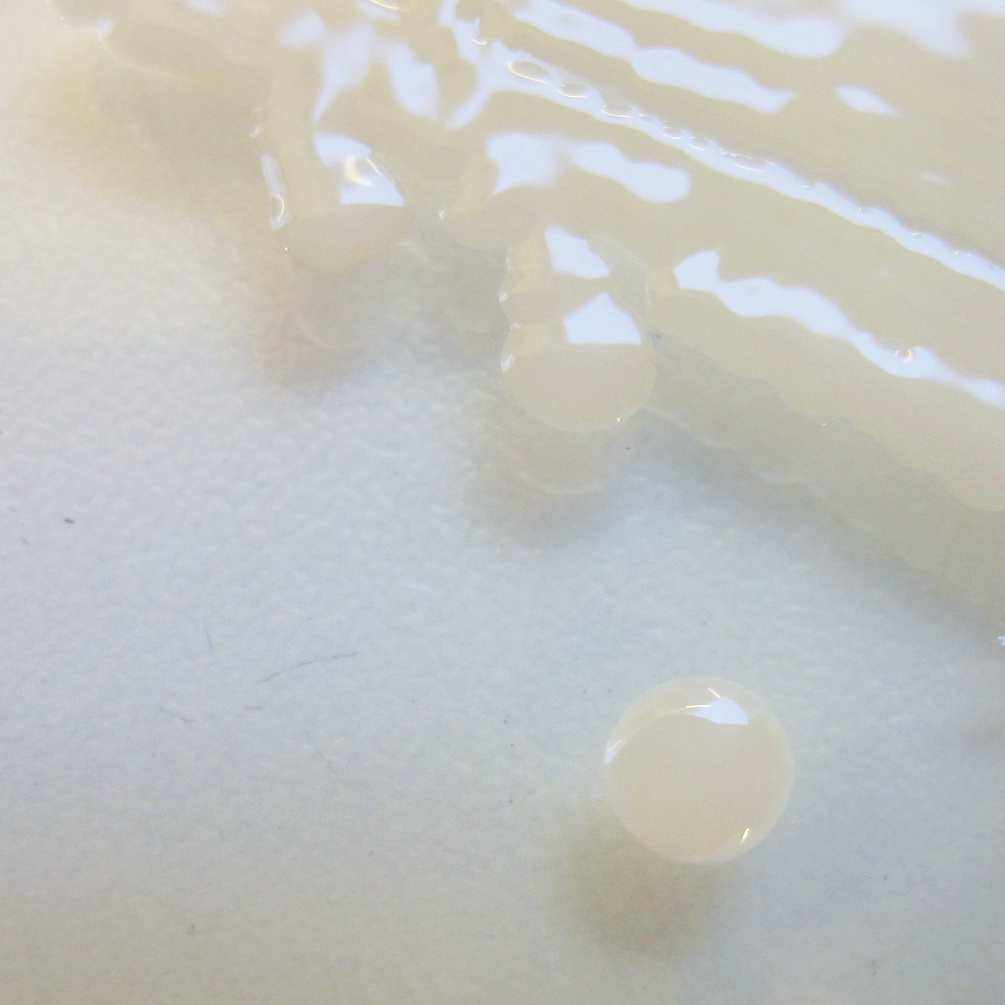
Acinetobacter CarbapenemR
cream, opaque
Performance
Worldwide reports of resistance to carbapenems found in Enterobacteriacae are a major health concern, specially in the case where the reducing susceptibility mechanism is the production of enzymes like KPC, OXA or MBL (ex: the recently reported NDM-1).
Carbapenems are the last resort in treating many serious gram-negative infections. However, production of these enzymes results in resistance to penicillins, cephalosporins (i.e., cefepime, ceftriaxone), carbapenems (i.e., meropenem, ertapenem), and aztreonam, thereby making these pathogens truly multidrug-resistant and making their treatment very challenging.
« KPC-producing bacteria have demonstrated a remarkable ability to disseminate with interfacility, interstate, and international transmission having been documented. » CDC 2008-R-24.
Thus, in order to limit the spread of these serious pathogens, rapid detection, followed by implementation of adequate infection control methods, is essential.
Application :
CHROMagar™ KPC is a selective and differential chromogenic culture medium, intended for use in the qualitative direct detection of gastrointestinal colonization with carbapenem-resistant Enterobacteria (CRE) to aid in the prevention and control of CRE in healthcare settings. The test is performed with rectal swab and stools from patients to screen for CRE colonization. Results can be interpreted after 18-24 h of aerobic incubation at 35-37 °C.
The medium can also be used as an early warning indicator for diagnostic tests of infections to signal the possible presence of multi drug-resistant bacteria. This use does not replace the institution’s protocols.
CHROMagar™ KPC is not intended to diagnose CRE infection nor to guide nor monitor treatment for infections. A lack of growth or the absence of colonies on CHROMagar™ KPC does not preclude the presence of CRE. Further identification, susceptibility testing, and epidemiological typing is needed on suspect colonies.
1. Detection after overnight incubation: Detection of Gram negative bacteria expressing a reduced susceptibility to antibiotics of the carbapenem family.
4. Flexibility: CHROMagar™ KPC supplement is supplied with a more than 18 months of shelf-life. This allows for flexibility of use whether in an epidemic situation with many patients to screen, or whether for random surveillance of cultures.
2. Time and workload savings: there is no need for a selective pre-enrichment medium. Direct plating of the sample is possible.
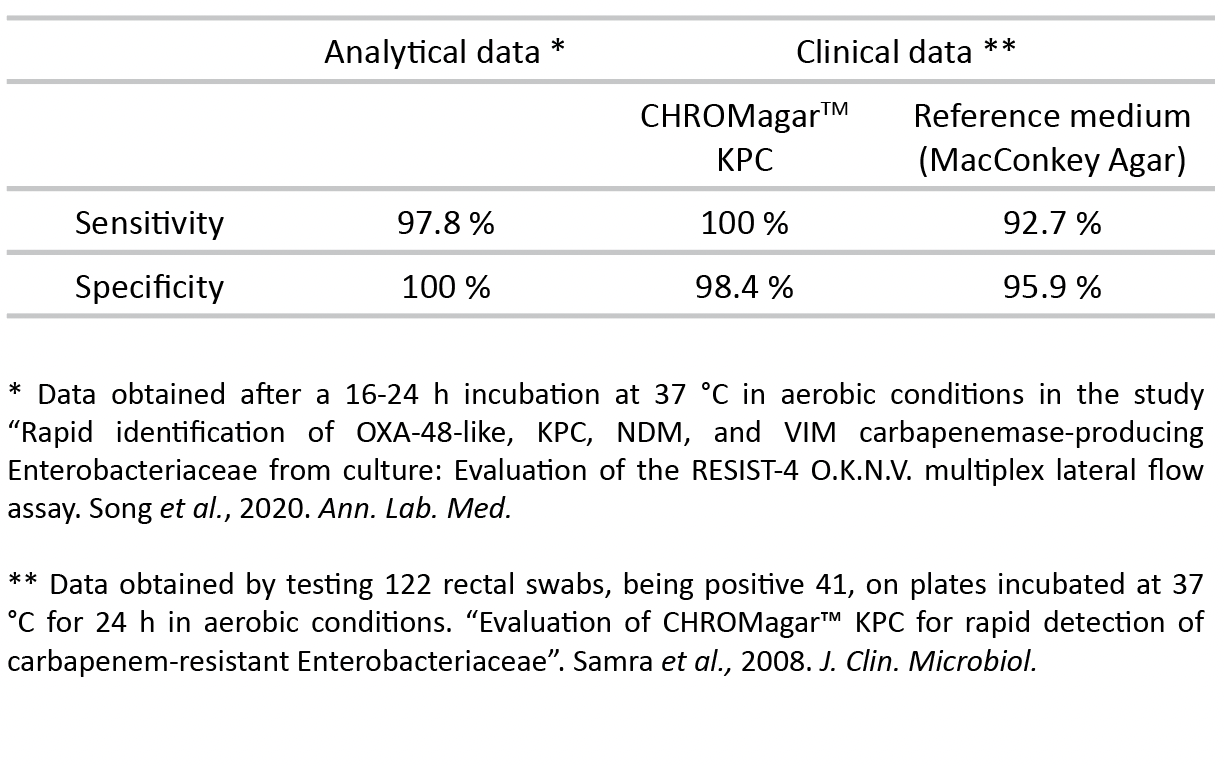
3. Short incubation: requires only 18-24 hours of incubation.
Composition
